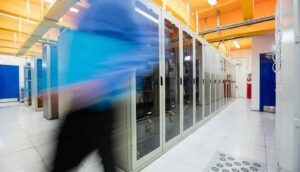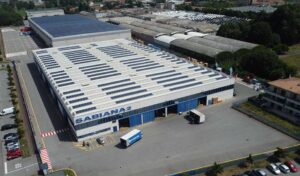Compressor control tests show 25% savings
30th December 2014 CANADA: Tests using compressor optimisation technology on a refrigerated trailer is said to have achieved savings of up to 25%.
CANADA: Tests using compressor optimisation technology on a refrigerated trailer is said to have achieved savings of up to 25%.
The recently completed tests by Vancouver-based Smartcool Systems Inc on a refrigerated trailer containing frozen products and operated by a food distribution firm in Southern Florida recorded savings of between four to six gallons per day. This is said to equate to 17% to 25% of the fuel consumed for refrigeration.
Data was collected over a period of six months to determine the amount of diesel fuel saved per day when controlled by the Smartcool system.
“This is a significant development in the expansion of the applications for the Smartcool Technology” states George Burnes, President of Smartcool Systems Inc. “Fuel costs represent one of the largest operating costs for food distribution companies. World food distribution burns billions of gallons of diesel to generate cooling. Diesel costs vary significantly depending on government taxation. Diesel in the US currently averages $3.50/gallon while in Europe costs of diesel averages $6.50/gallon. To be able to save between $14 and $21 per day, per truck, for owners/operators of fleets represents a major reduction in operating costs. In Europe, these daily savings would be close to double.”
“The next stage is to test trailers that transport Fresh produce. Consumption statistics indicate that even more fuel is needed to maintain temperature for this application, which should result in higher daily fuel savings.”
The testing will begin In January with the same food distribution company.
Smartcool expects to be able to commence a commercial roll out of technology for transportation refrigeration in 2015.
The ECO3 and ESM are Smartcool’s retrofit technologies that reduce the energy consumption of compressors in air conditioning, refrigeration and heat pump systems by 15% to 20%, giving customers a return on investment in as little as 12 months.
The units are installed between the thermostat or primary controller and the compressor in any hvacr system. They work by actively monitoring and analysing the conditions of the system.
The information gathered is used to dynamically adjust the length of each cooling cycle in order to help the compressor operate more often under its most energy efficient conditions.
The ECO3 or ESM will intercept the signal from the controller and calculate when the compressor should start and how long it should run for maximum energy savings while still achieving temperature requirements.







